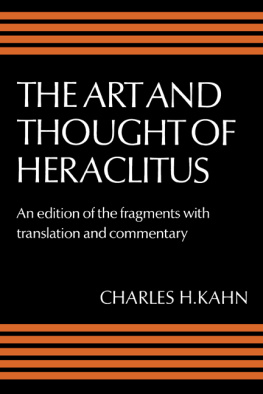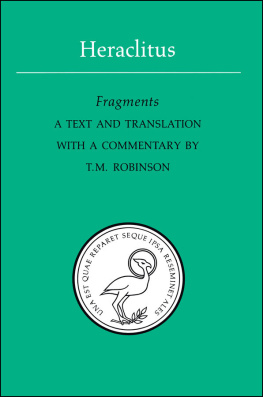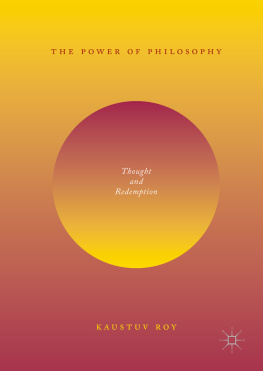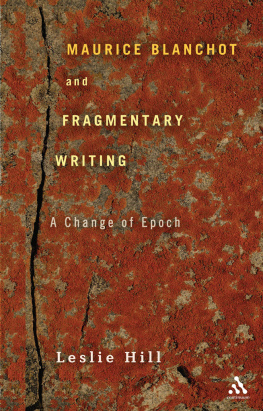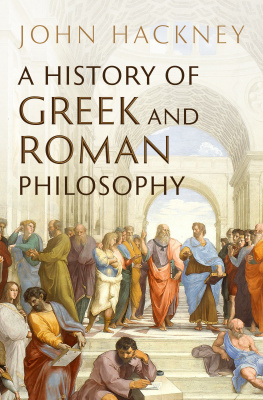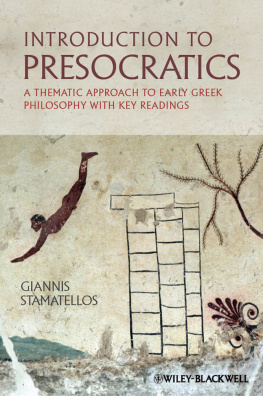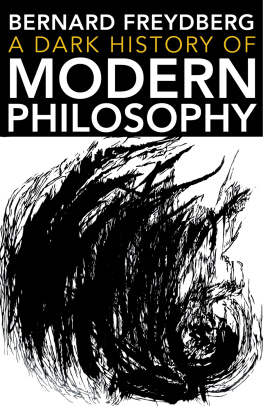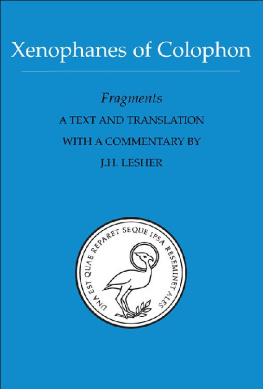THE ART AND THOUGHT OF HERACLITUS
The art and thought of Heraclitus
An edition of the fragments with translation and commentary
CHARLES H. KAHN
Professor of Philosophy, University of Pennsylvania

PUBLISHED BY THE PRESS SYNDICATE OF THE UNIVERSITY OF CAMBRIDGE
The Pitt Building, Trumpington Street, Cambridge, United Kingdom
CAMBRIDGE UNIVERSITY PRESS
The Edinburgh Building, Cambridge CB2 2RU, UK
40 West 20th Street, New York, NY 100114211, USA
10 Stamford Road, Oakleigh, VIC 3166, Australia
Ruiz de Alarcn 13, 28014 Madrid, Spain
Dock House, The Waterfront, Cape Town 8001, South Africa
http://www.cambridge.org
Information on this title: www.cambridge.org/9780521218832
Cambridge University Press 1979
This book is in copyright. Subject to statutory exception and to the provisions of relevant collective licensing agreements, no reproduction of any part may take place without the written permission of Cambridge University Press.
First published 1979
First paperback edition 1981
Reprinted 1983, 1987, 1989, 1993, 1995, 1999, 2001
Library of Congress Catalogue card number: 77-82499
British LibraryCataloguing in Publication data
Heraclitus
The art and thought of Heraclitus.
Philosophy, Ancient
I. Title II. Kahn, Charles H.
182.4 B220.E5
ISBN 0 521 28645 X paperback
Transferred to digital printing 2004
for Charalampos S. Floratos
a true friend and scholar, master of the
classical tradition and hierophant of
the beauty of Cephalonia
Contents
Preface
Heraclitus was a great prose artist, one of the most powerful stylists not only of Greek antiquity but of world literature. He was also a major thinker, perhaps the only pre-Socratic philosopher whose thought is of more than historical interest today. His reflections upon the order of nature and mans place within it, upon the problems of language, meaning and communication still seem profound; and many of his insights will remain illuminating for the modern reader, not merely for the specialist in ancient thought.
The aim of the present work is to demonstrate the truth of these claims by making Heraclitus accessible to contemporary readers as a philosopher of the first rank. With this in mind I have tried to rearrange the fragments in a meaningful order, to give a translation that reflects as far as possible the linguistic richness of the original, and to provide a commentary designed to make explicit the wealth of meaning that cannot be directly conveyed in a translation but is latent in Heraclitus own words, in his tantalizing and suggestive form of enigmatic utterance.
The Greek text is given here together with the translation, since any interpretation is obliged to make continual reference to the original wording. And I think it should be possible to read the fragments in a meaningful order, even if one reads them in Greek. No attempt has been made to produce a new critical edition, and I have generally followed the text of Marcovich where he diverges from Diels. But in some nine cases my text differs from both Diels and Marcovich in such a way that the interpretation of the fragment is altered, sometimes radically (see p. 26). The notes to the translation are designed to provide the minimum of information required to understand Heraclitus words without a knowledge of Greek. The commentary is there for those readers who would go further. But in the commentary too all Greek words have been given in transliteration, and the element of scholarly controversy has been kept to a minimum (although I have tried to acknowledge my debt to my predecessors, and to take some account of their views even where I disagree). The aim throughout has been not to add another book to the secondary literature on Heraclitus but to make the thought of Heraclitus accessible to the general reader in the way that a good translation and commentary on the Divine Comedy tries to make the poetry of Dante accessible to one who knows little or no Italian.
The comparison to Dante is chosen deliberately. Despite the vast difference in scale between the two works, and despite the fact that our text is only partially preserved, even from these shattered remains we can see that the literary art of Heraclitus composition was comparable in technical cunning and density of content to that of Dantes masterpiece. As a thinker, Heraclitus was even more original. And in both cases the reader who approaches his author without any scholarly assistance is likely to get quickly lost. May this serve as my excuse for such a lengthy commentary to such a brief text.
The first draft was written in Athens in 197475, when I held a senior fellowship from the National Endowment for the Humanities and was in residence as visiting professor at the American School of Classical Studies. I am happy to express my appreciation to the Endowment for its support, and to thank the American School, its then director James McCredie, and the staff of the Blegen Library for their friendly help and hospitality. I am greatly obliged to the Research Center for Greek Philosophy and the Academy of Athens for cordial assistance, and in particular to Dr E.N. Roussos of that Center who permitted me to use his typescript of Wieses dissertation, Heraklit bei Klemens von Alexandrien. Among the colleagues who improved this work by their criticism I must mention G.E.L. Owen and Edward Hussey. The translation has benefited from suggestions by Diskin Clay, Jenny Strauss Clay, Martin Ostwald and John van Sickle. Barbara Hernnstein Smith kindly served as my Greekless reader, and made many valuable suggestions for a more idiomatic translation as well as for the presentation of notes and commentary. Finally, both the reader and I are indebted to R.J. Mynott of the Cambridge University Press for showing me how to condense the commentary; it is not his fault if it is still a bit long.
A free man thinks of death least of all things, and his wisdom is not a meditation upon death but upon life.
Spinoza, Ethics IV.67
The longing not to die, the hunger for personal immortality, the effort by which we strive to persevere in our own being, this is the emotional basis for all knowledge and the intimate point of departure for all human philosophy.
Unamuno, The Tragic Sense of Life
Bibliography and abbreviations
Adkins, A.W.H. Merit and Responsibility: A Study in Greek Values (Oxford, 1960)
AJP: American Journal of Philology
Anaximander: C.H. Kahn, Anaximander and the Origins of Greek Cosmology (New York, 1960)
A new look at Heraclitus: C.H. Kahn in American Philosophical Quarterly 1 (1964), 189203
Bollack, J. and H. Wismann. Hraclite ou la sparation (Paris, 1972)
Bronowski, J. The Ascent of Man (London, 1973)
Burnet, J. Early Greek Philosophy (4th ed. London, 1930)
Bywater, I. Heracliti Ephesii reliquiae (Oxford, 1877)
Deichgrber, K. Bemerkungen zu Diogenes Bericht ber Heraklit, Philologus 93 (1938), 1230
Diels, H. Doxographi graeci (Berlin, 1879; reprint, 1929)
Diels, H. Herakleitos von Ephesos (1st ed. Berlin, 1901; 2nd ed. 1909)
DK: H. Diels, Die Fragmente der Vorsokratiker , 6th ed. by W. Kranz (Berlin, 1951)
D.L.: Diogenes Laertius, Lives of the Philosophers (ed. H.S. Long, Oxford, 1964)
Dodds, E.R. The Greeks and the Irrational (Berkeley, 1951)
Frnkel, H.
Next page
